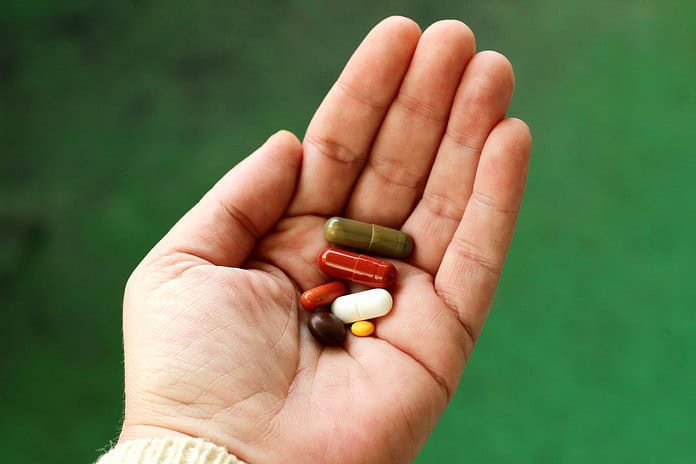Last Updated on October 14, 2024 by The Health Master
Overuse of medicines
The rampant overuse of medicines in the country has emerged as a significant contributor to the increasing threat of antimicrobial resistance (AMR) among patients.
Health care experts have sounded the alarm, pointing out that the widespread resistance to antibiotics is causing a surge in infection rates among patients, especially those admitted for prolonged periods.
Understanding Antimicrobial Resistance (AMR)
Antimicrobial resistance is a critical issue wherein the commonly used drugs to treat infections, such as antibiotics and anti-fungal medications, lose their effectiveness.
This occurs when bacteria develop resistance to these drugs, rendering them less potent.
The consequences of AMR are severe, leading to prolonged illnesses and increased difficulty in finding effective treatments.
Impact of Medicinal Drug Overuse
The overuse of medicinal drugs, particularly antibiotics, is directly linked to the rising cases of AMR.
Shockingly, 25% of healthcare-associated infections in patients admitted for extended periods are now caused by antibiotic-resistant bacteria.
This alarming statistic emphasizes the urgent need to address the issue of overprescribing and misuse of antibiotics.
Observations from Healthcare Experts
Healthcare experts, who are at the forefront of dealing with antibiotic resistance, have shared their observations.
Dr. J Anish Anand, a consultant in internal medicine at Apollo Hospitals, Jubilee Hills, highlighted the concerning shift in the duration of treatment.
Bacteria that could be cured in a day or two now require at least five days, and in some cases, there’s no cure or only a limited number of antibiotics are effective.
Challenges Faced in Treatment
Treating infections in the era of widespread antibiotic resistance presents significant challenges.
The limited options for effective antibiotics make it difficult for medical practitioners to provide timely and efficient treatments.
Reports with antibiotic resistance in blood and urine cultures have become increasingly common, indicating a pressing need for action.
India’s Position in the Global Scenario
India, while being a massive consumer of antibiotics globally, also bears one of the largest burdens of drug-resistant pathogens.
The country’s healthcare landscape is grappling with the dual challenge of high antibiotic consumption and the prevalence of resistant strains, making it imperative to address the situation promptly.
Testimonies from Medical Practitioners
Doctors, dealing with the repercussions of antibiotic resistance on a daily basis, emphasize the urgent need to curb AMR.
Dr. Iyer Ranganathan N, a senior consultant in microbiology and infectious diseases at Global Hospitals, Hyderabad, stressed the ease with which infections spread among patients in healthcare facilities, underscoring the necessity of tackling AMR head-on.
Causes of Antibiotic Resistance
The primary cause identified by medical professionals for the development of resistance is the irrational use of antibiotics without proper medical supervision.
Inadequate prescription periods further exacerbate the problem, giving bacteria more time to develop resistance to the drugs.
The Role of Education and Awareness
Addressing the issue of antibiotic resistance requires a multifaceted approach, including educating the public on responsible drug use.
Raising awareness about the consequences of antibiotic resistance is crucial to fostering a sense of responsibility among both healthcare providers and the general population.
Government Initiatives and Policies
Governments are beginning to recognize the severity of the situation and are implementing initiatives and policies to regulate antibiotic use.
These efforts aim to create a framework for responsible prescription practices and to monitor and control the sale of antibiotics.
Global Collaborations
Given the global nature of antibiotic resistance, international collaboration is paramount. Countries need to work together to share information, research findings, and strategies to combat AMR effectively.
Collaborative efforts are essential to finding alternative solutions and developing new antibiotics.
Promoting Responsible Antibiotic Use
Encouraging responsible behavior in the use of antibiotics is pivotal in addressing the issue.
This involves not only healthcare providers prescribing judiciously but also campaigns to inform the public about the proper use of antibiotics, emphasizing the importance of completing prescribed courses.
Future Outlook
The consequences of not addressing AMR urgently are grave. Prolonged illnesses, increased mortality rates, and economic burdens are among the potential outcomes.
However, ongoing innovations and research in the field of antibiotics offer hope for finding alternative solutions and mitigating the impact of antibiotic resistance.
Conclusion
In conclusion, the rampant overuse of medicinal drugs, particularly antibiotics, is a pressing concern contributing to the rise in antimicrobial resistance.
Urgent action is needed to curb the irrational use of antibiotics, educate the public, and implement policies to regulate antibiotic use. The consequences of inaction are severe, affecting not only individual health but also the global healthcare landscape.
Frequently Asked Questions (FAQs)
- Q: What is antimicrobial resistance (AMR)?
- A: AMR occurs when bacteria become resistant to commonly used drugs, rendering them less effective in treating infections.
- Q: Why is the overuse of antibiotics a concern?
- A: Overuse of antibiotics leads to antibiotic resistance, making it challenging to treat infections and increasing the risk of healthcare-associated infections.
- Q: How does India contribute to the global burden of drug-resistant pathogens?
- A: India is a massive consumer of antibiotics and carries one of the largest burdens of drug-resistant pathogens globally.
- Q: What role do healthcare experts play in addressing antibiotic resistance?
- A: Healthcare experts provide insights, observations, and experiences that highlight the urgency of addressing antibiotic resistance and its impact on patient care.
- Q: What can individuals do to combat antibiotic resistance?
- A: Individuals can contribute by using antibiotics responsibly, completing prescribed courses, and raising awareness about the consequences of antibiotic resistance.








